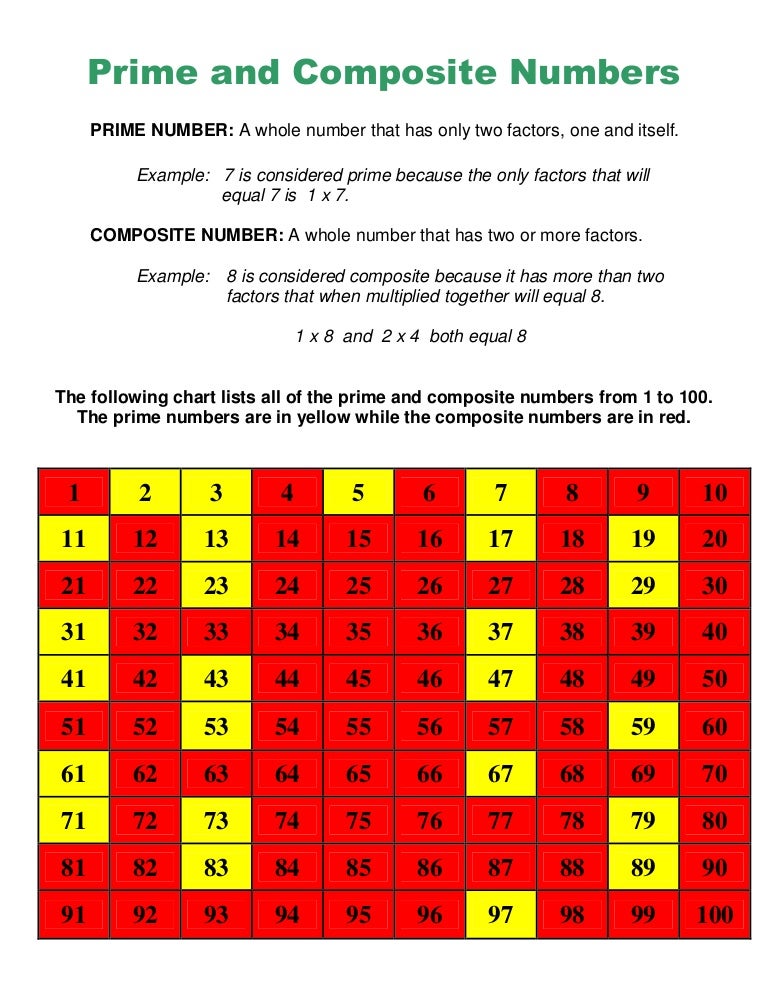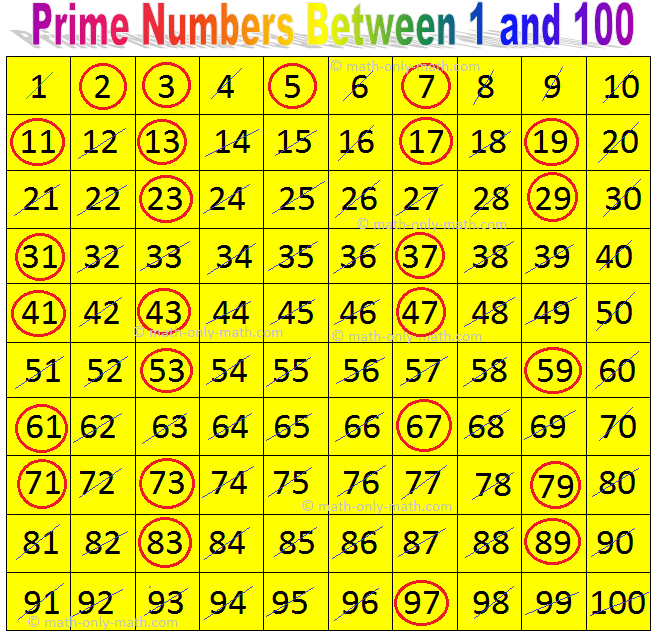Delving into the realm of numbers, one encounters a fascinating duality that categorizes them—prime or composite. Prime numbers stand as solitary figures, indivisible by any integers apart from themselves and one. Composite numbers, in contrast, concede to a division by two or more numbers apart from themselves and one.

Image: www.slideshare.net
In this numerical tapestry, 21 emerges as a distinctive entity. Is it a solitary prime or a composite number accommodating division? Embark on an enlightening odyssey to uncover the true nature of 21.
Descending into the Depths of Composite Numbers
Composite numbers invite division by multiple integers. They are composed of smaller, indivisible building blocks, which, when multiplied, recreate the original number.
For instance, 12, a composite number, willingly submits to division by 2, 3, 4, and 6. These divisors, acting as numerical threads, weave together to form the whole fabric of 12.
Distinguishing the Prime from the Composite
Prime numbers, in contrast, refuse this fragmentation. They stand as indivisible entities, defiant to any attempts at division by numbers other than themselves and one.
Take 7, a proud prime, as an example. It remains impervious to all division save itself and the ubiquitous one. It is this resolute integrity that earns primes their mathematical acclaim.
Unmasking 21: The Prime Revelation
Returning to our numerical enigma, 21, we embark on a voyage of discovery to determine its true nature. The allure of composite numbers lingers, tempting us to explore their deceptive charms.
However, upon closer examination, we find that 21 eludes their grasp. It stubbornly resists division by any number other than itself and the trusty one. This unyielding behavior reveals 21’s prime essence.

Image: www.animalia-life.club
Observing the Prime Perspective
Primes occupy a privileged position within the numerical realm. They are the elemental building blocks from which all other numbers are constructed. Their significance extends beyond mere mathematics, reaching into cryptography, computer science, and physics.
From the encryption of sensitive data to the search for cosmic patterns in physics, primes play an indispensable role, their influence permeating countless fields of human inquiry.
Unveiling Expert Insights on Primes
Drawing from the collective wisdom of experienced mathematicians and diligent researchers, we illuminate the topic of primes with expert advice.
These learned mentors advocate for a thorough understanding of prime factorization, the intricate art of decomposing numbers into their prime constituents. This knowledge unlocks doors to a deeper comprehension of numbers and their hidden relationships.
Frequently Asked Questions: A Prime Inquiry
Q: Why are prime numbers so revered?
A: Primes, due to their indivisible nature, serve as fundamental building blocks in mathematics and underpin various applications in fields such as cryptography and physics.
Q: How are prime numbers used in daily life?
A: Primes play a crucial role in secure communication protocols and algorithms in the digital world. Additionally, prime factorization aids in genetic testing and other scientific endeavors.
Q: What is the significance of finding prime numbers?
A: Discovering prime numbers has historical and practical importance. Ancient civilizations, including the Greeks and Egyptians, studied them extensively. Furthermore, finding primes is essential for encryption systems and advancing our understanding of mathematics.
Is 21 A Composite Or Prime Number
Conclusion
Through an exploration of prime and composite numbers, we have unraveled the enigmatic nature of 21. It emerges as a prime number, standing tall among its composite peers.
May this journey into the world of numbers have kindled your curiosity. We encourage you to explore further into the realm of prime numbers, delving deeper into their hidden intricacies. Let the fascination with numbers continue!

